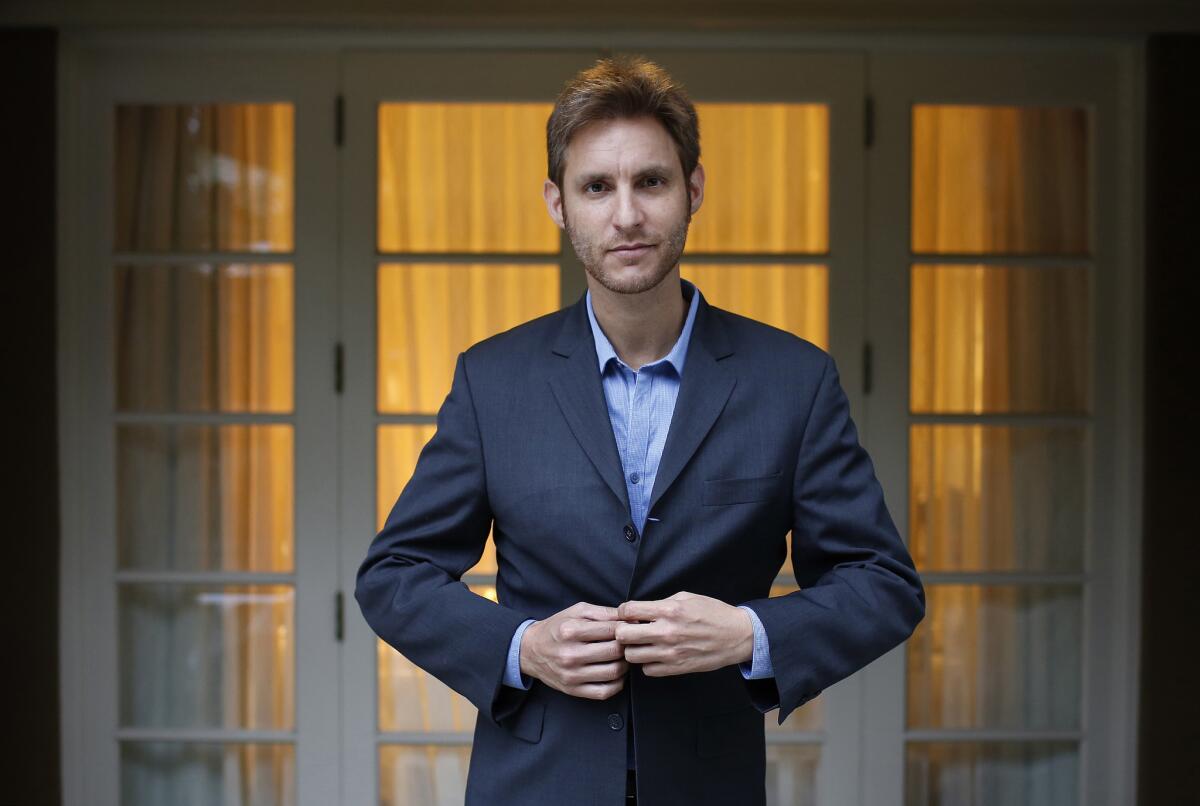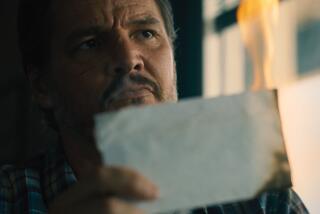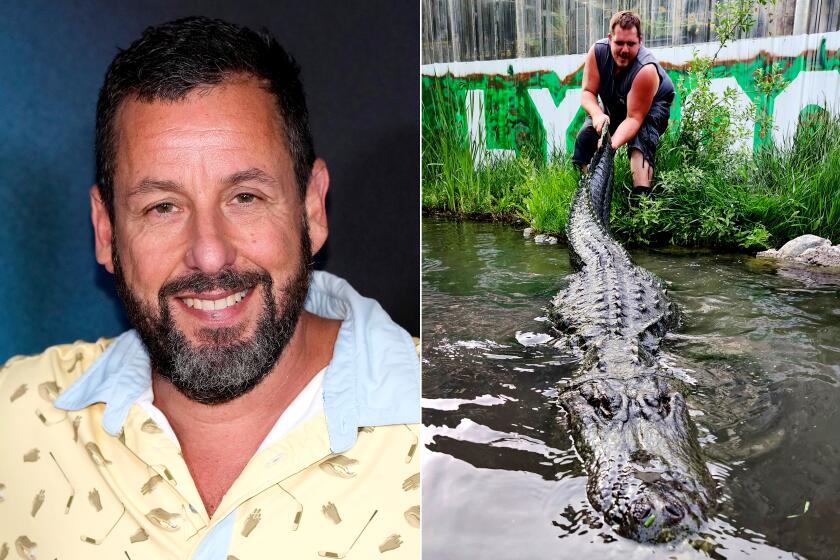Oscars 2015: Argentine director’s ‘Wild Tales’ hits on universal tensions

- Share via
The cafe cook whose recipe includes rat poison. The explosives expert whose car has been towed one too many times. The failed filmmaker who lures all of his detractors onto one doomed plane.
The pressures of modern-day living are themes in Argentine director Damián Szifrón’s collection of short stories, “Wild Tales,” but it’s the sweet taste of revenge that makes this Oscar-nominated, foreign-language film so delicious.
FULL COVERAGE: Oscars 2015
The six darkly funny vignettes of “Wild Tales” are a cathartic journey for anyone who’s ever been laid off, cheated on, discriminated against, underpaid, overworked, misrepresented or consumed by road rage. Is there anyone who doesn’t fit the profile?
“It’s easy to see the lack of freedom in past eras,” says Szifrón, 39, on a recent stop in Los Angeles. “But sometimes it’s hard to see the tyranny of this world, of our present time in big cities. The film is contemporary in that sense. It’s about the pleasure of reacting toward abuse of power, injustice … and against each other.”
The film, which was written by Szifrón, has broken multiple box office records to become the most successful feature film in Argentina’s history. It’s also gained traction in Spanish-language markets across Latin America and Europe, and received the coveted standing ovation at Cannes before being nominated for an Oscar.
In the foreign-language film race, “Wild Tales” is up against favorites “Ida” from Poland and “Leviathan” from Russia, along with Estonia’s “Tangerines” and Mauritania’s “Timbuktu.” The Academy Awards will be telecast Sunday from the Dolby Theatre.
PHOTOS: Oscars 2015 top nominees | Presenters | Nominee reactions | Awkward moments
If Szifron’s movie does take top honors, it will be the third Argentine film to do so. It would also mean that our deepest primal urge to retaliate against no-parking zones and gridlock triumphed over heavy wartime and post-holocaust dramas.
“For me, drama is too passive,” says Szifrón, whose lithe frame and enthusiastic demeanor make him look more like a recent film school grad than seasoned director. “Something bad happens, and there’s nothing you can do about it. That’s tragedy. You feel depressed. But in [“Wild Tales”] people react in situations where most other people would repress. It’s crazy, yes, and liberating.”
Szifrón’s previous feature films, 2003’s “The Bottom of the Sea” and 2005’s “On Probation,” were also critically acclaimed black comedies that dealt with everyday people stuck in impossible situations.
After seeing those films, Spanish filmmaker Pedro Almodóvar (“Women on the Verge of a Nervous Breakdown”) and his brother, Agustín, approached Szifrón. The duo ended up co-producing “Wild Tales.”
“Was I surprised they even knew who I was?” recalls Szifrón. “Yes.”
The Buenos Aires-based filmmaker started his career in the early 2000s writing, producing and directing for Argentine television.
His first TV series, “Pretenders,” which was about a group of con men, helped make a name for the twentysomething, Universidad del Cine Buenos Aires graduate. The series was followed a few years later by the hit police detective show “Brothers & Detectives.”
But Szifrón’s love for the short story format started well before his foray into television.
“The first books that made an impact on me were ‘Master Tales’ of crime, mystery and so on,” says Szifrón.
“Each was only 10 or 12 pages, but in a very short space they developed characters and conflict,” he says. “You reach the climax, boom, that’s it. Next one. It never gets boring.”
The grandson of Jewish immigrants who fled Poland following World War II, Szifrón grew up in the province of Buenos Aires. His father was a small businessman with no formal ties to the film industry. Still, he had a huge impact on his son’s future career.
“My father was poor, and his first job was at a movie theater,” Szifrón says. “He was the kid who carried the film canisters to the booth, so he would watch the films for free. That’s how he became a cinephile. He was my teacher.”
OSCARS 2015: Complete list | Ballot | Cheat Sheet | Top nominees | Presenters | Timeline
The younger Szifrón came of age going to films with his father each weekend and playing with the abundance of equipment — Super 8 projectors and VHS gear — at home.
“My father used to shoot our family a lot,” he says. “Then he’d edit in music from films he loved. So I used to watch myself riding a horse while listening to Ennio Morricone’s soundtrack from ‘The Good, the Bad and the Ugly,’ or see my mother walking on the beach to the ‘Gone With the Wind’ theme. Memories of real life and movies were mixed all the time for me.”
“Wild Tales” focuses on capturing the emotional zeitgeist of city living, regardless of where that city may be.
“You grab something that’s in the air and turn it into a story,” he says. “It belongs to you, but also it belongs to the people, your time, your era.”
When asked what “Wild Tales” — a film full of retributional acts — reveals about his own psyche, he says with a laugh: “I don’t know what this film says about me. I don’t think I want to know.”
More to Read
Only good movies
Get the Indie Focus newsletter, Mark Olsen's weekly guide to the world of cinema.
You may occasionally receive promotional content from the Los Angeles Times.









